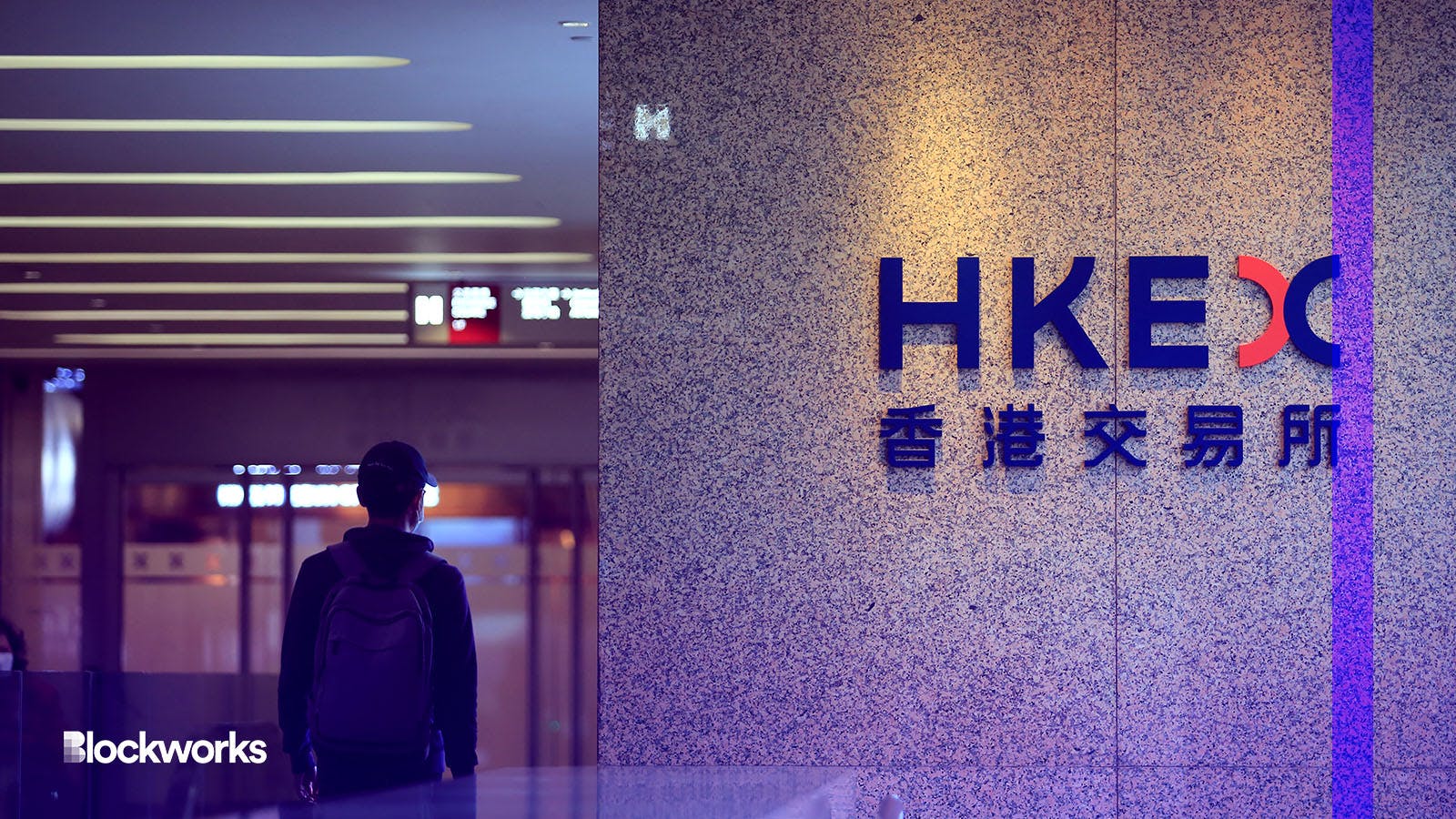Hong Kong Stock Exchange debuts new settlement system, but it’s not a blockchain
The settlement acceleration platform, called Synapse, allows global investors to efficiently handle post-trade tasks across various time zones.

Lewis Tse/Shutterstock, modified by Blockworks
The operator of the Hong Kong Stock Exchange (HKEX) has launched an upgraded settlement platform for Stock Connect, which links the exchanges of Shanghai and Hong Kong, modernizing its system of handling transactions.
HKEX’s improved platform, called Synapse, will integrate smart contracts through the use of DAML (Digital Asset Modelling Language), a specialized programming language launched by Digital Asset in 2016. DAML is tailored to standardize and streamline post-trade procedures.
Using a language like DAML for smart contracts can help clearing agencies like HKEX update and make their settlement processes better.
It is a way to modernize and improve the exchange’s settlement processes by automating tasks, reducing risks and increasing efficiency and transparency.
Synapse makes settlement processes faster and more transparent, benefiting asset managers, brokers, custodians and clearing participants by allowing real-time data syncing to handle higher trade volumes efficiently, HKEX said in a statement released Wednesday.
“HKEX Synapse is a DAML smart contract based integrated settlement platform that supports institutional investors participating in Northbound Stock Connect to better manage their post-trade operations across different time zones, in particular with regard to adhering to the Mainland securities market’s T+0 settlement cycle,” a spokesperson for HKEX told Blockworks.
The clearinghouse said that in the first half of 2023, daily trading volume for Northbound Stock Connect averaged RMB 109.3 billion ($15.1 billion), marking a 5% rise from the previous year and a 50% jump compared to 2020 levels.
Synapse, offered as an opt-in service, is designed to support institutional investors participating in Northbound Stock Connect, which involves trades settled in Renminbi by both local and overseas investors, allowing them to easily handle post-trade operations across varying time zones.
Other financial exchanges have explored the use of blockchain technology to enhance their efficiency, however HKEX clarified to Blockworks that its system is not based on blockchain — in contrast to an earlier document on its website which the spokesperson explained was outdated.
Similar efforts have used permissioned ledgers based on proof-of-authority consensus.
However, the Australian Securities Exchange (ASX) last year halted its blockchain system development, which was aimed at modernizing its outdated settlement layer, after three years of effort.
Meanwhile, the London Stock Exchange Group has developed a new digital markets venture, potentially positioning itself as a front-runner among prominent exchanges in embracing blockchain for trading of conventional financial assets.
Correction, October 10, 2023 at 6:50 am ET: Headline and story now reflect HKEX statements that references to blockchain in its documentation were outdated.
Get the news in your inbox. Explore Blockworks newsletters:
- The Breakdown: Decoding crypto and the markets. Daily.
- 0xResearch: Alpha in your inbox. Think like an analyst.






